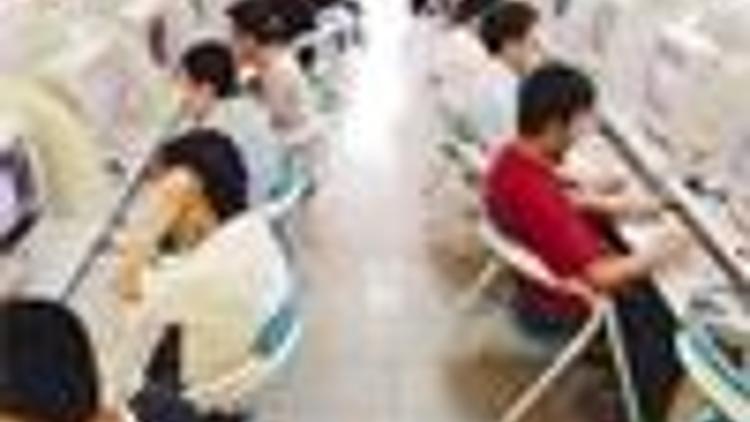Questioning crediblity of Web-based surveys
Güncelleme Tarihi:

ISTANBUL - Contrary to common belief, Internet petitions are not in the same category as Internet polls in terms of representation, say experts. Petitions present the opinions of solely the signatories. The signatories express their opinions about specific issues only.
Internet surveys and online petitions do not represent the opinions of the general public because t hey do not use a genuine sample and are vulnerable to manipulation, say experts.
"Internet respondents do not constitute a genuine sample. They do not represent the opinion of the community they target," said Tarhan Erdem, a public opinion poll analyst and daily Radikal columnist. Speaking to the Hürriyet Daily News & Economic Review, he said participants of the polls are people who want to respond, those who heard about the poll or are frequenters to the Web site.
Discussions about the safety and accuracy of online polls and petitions came to the fore with the recent Web-based campaign launched to issue an apology to Armenians for 1915 incidents in the Ottoman state.
Contrary to common belief, Internet petitions are not in the same category as Internet polls in terms of representation, say experts. Petitions present the opinions of the signatories only. "The petitions do not claim to represent public opinion. The signatories express their opinions about a specific issue. They don’t claim to represent whole society," said Erdem.
As reactions to the online apology at ozurdiliyoruz.com continue, the signatures numbered nearly 14,000 yesterday.
It turns out, however, that not all signatories are real. One of the Armenian apology signatories was İsmail Erez, Turkey’s Ambassador to Paris at the time who was killed in 1975 by an Armenian terrorist organization, daily Akşam reported yesterday.
"Some people signed the petition under false names in order to discredit this campaign. They used the names of the old ambassadors. We delete those signatures as soon as we see them," said Cengiz Aktar, a professor at Istanbul's Bahçeşehir University who is one of the campaign's architects and a regular columnist for the Hürriyet Daily News & Economic Review.
"Our Web site was sabotaged but we have taken the necessary measures and filtered the names," Hakan Tahmaz, another one of the campaign’s organizers, told daily Milliyet yesterday. The Justice and Development Party, or AKP, deputy Süreyya Sadi Bilgiç, whose name was on the petition, said he will file a complaint against those who used his name.
Like online petitions, Internet-based surveys face the same problem of security and accuracy, but additionally, methodology is problematic.
A major problem for these polls is that respondents are limited to people who have access to the Internet. According to research conducted by the Turkish Statistical Institute, or TUIK, as of April only about 24 percent of households in Turkey have Internet access.
"Not only in Turkey but anywhere in the world, we cannot regard Internet polls as a reliable source," said Erdem, adding that limited and unequal Internet access is only one reason for that.
Another problem is the technological gaps that allow one person to vote more than once on the Internet. "An Internet poll should be both using cookies and detecting the IP number of each voting computer as a measure of security," said Kutluk Kağan Sümer, a statistician. However, professionals can always find a way around these measures, he added.
When "Time" magazine held a campaign to select the top leaders of the 20th century through an Internet poll in 1999, Turkey’s founder Mustafa Kemal Atatürk received the most votes. But it was because many groups in Turkey shared the link with many people and increased the votes by distributing the news about the poll. Publicizing a poll is significant for getting more people to vote, which mean unheard of polls are targeting less people.
Multiple voting
Sümer, also an academic, said he voted more than 30 times for Atatürk in Time’s campaign. "Internet polls can easily be manipulated if professionals are involved in voting," Sümer said.
A similar publicity campaign occurred when the American magazine Foreign Policy decided to take a poll for the year's top 10 public intellectuals and Fethullah Gülen, a Turkish Islamic scholar, topped the list. More than 500,000 people voted for their top choices from the original list of 100 figures. Gülen is the head of a movement that sets up schools and dormitories around the world, but his opinions on education, science, Darwinism, the economy and social justice are a source of controversy. His movement also has a presence in Turkey’s media.
Most surveys use the computer’s IP address as a measure and do not allow multiple votes from a single computer. "But some people have access to over 30 computers like an Internet caf owner or a school teacher. The system is not 100 percent safe," said Sümer.
There is no certain way to stop people voting more than once in a poll or signing a petition multiple times, Erdem said, adding that this security fault is not peculiar to Internet petitions. "People can use fake names while signing on paper too," he said.
Sümer, however, said identification numbers could be used for petitions or polls on the Internet surveys, "but still people can use other people’s numbers. This system can only secure that one ID number votes once, regardless if it is the right person."

